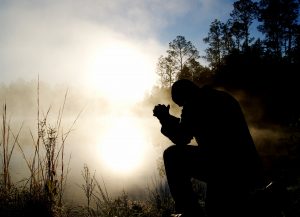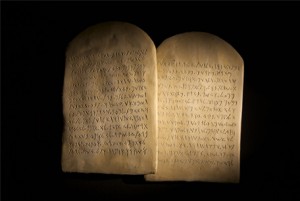Continuing the story dig. After reading Parts 1 and 2 of this “beginning within a beginning” blog series, jump into this Part 3—walking the bridge from Genesis 1:1 to its (perhaps) surprising messianic connection.
This series is related to a spiritual call (started in the early 90s) for me to walk a bridge—from the Judaic camp reaching out to the Messianic/Christian camp and then vice versa—crisscrossing it, realizing and later sharing who and what the real bridge is. Walk with me to discover God’s revelations and passionate plan for our souls.
© desireofmysoul.faith (.com & .org) & SoulBreaths.com. All rights reserved.
SUGGEST READING THIS FIRST: Beginnings within Beginnings [Part 1] and Beginnings within Beginnings [Part 2]
READING TIME: 4 MINUTES
From page one of the Bible, God is on the move. His love revealed. He speaks forth creation for the sake of His redemption story . . . for a humanity yet to be created.
A humanity who will rebel against His ways, refuse to surrender to Him, and recant their promises to Him.
And yet, His mercies endure forever. His love, the motivating factor in all that He does.
With a WORD, God created His story, this dimension, space, order, time, this beginning within a beginning. This beginning that is unfolding, contracting, stretching out and beginning again. Our sovereign God who loves to create . . . who desires to continually bring forth new things in line with His purpose and holy desire.
Rabbinic teaching says that the WORD God spoke did the actual creation. That same Jewish sentiment echoes throughout the pages of the New Testament—with the rest of the story revealed.
Because this WORD came forth from WITHIN God, embodying and performing both the creative process and the world’s REDEMPTIVE process.
By the word of the Lord the heavens were made,
and by the breath of his mouth all their host.
He gathers the waters of the sea as a heap;
he puts the deeps in storehouses.
Let all the earth fear the Lord;
let all the inhabitants of the world stand in awe of him!
For he spoke, and it came to be;
he commanded, and it stood firm.
—Psalm 33:6-9
By faith we understand that the universe was created
by the word of God,
so that what is seen was not made out of things that are visible.
—Hebrews 11:3
But who or what is this WORD that “came from the Father”? And since creation is part and parcel of God’s redemption story, what part does this WORD play?
Let’s continue strolling both sides of the bridge to discover God’s mystery and riches in the WORD, in the one whom all the treasures of wisdom and knowledge are hidden.
WALK WITH ME: AND HE SPOKE
Just so we’re clear. We’re not talking about some mere vocabulary word used in the creation process—or even some everyday Joe who was a decent guy who God used down here to do the redemption part of the work.
Uh-uh. We’re talking about God Himself bringing forth from within Himself—the essence of Himself manifested in the WORD.
Therefore, the WORD is and was and always will be one with the Father.
So much so, that when the WORD would later come forth from the Father and manifest down here in the flesh for the sake of humanity’s redemption, he’d be called Wonderful Counselor, Mighty God, Everlasting Father, Prince of Peace (Isaiah 9).
BACK IN THE LATE 90s/EARLY 2000s . . . I was still struggling at times to better understand the Father and Messiah (Jesus) relationship. Uniquely One, but yet . . .
So one day, I’d asked my friend’s Greek husband to give me the 4-1-1 on John 8:42—translating the scripture from the Greek since the original language of the New Testament was written in Koine Greek.
He said it read that Jesus “came up out of the Father” . . . and that it was similarly written in John 16.
Ah! The fog was clearing for me. That image changed so much for me.
It took time, but it began to unravel some of the mystery hidden within the WORD, the Messiah—one that interestingly mirrored rabbinic thinking about the WORD doing the creation.
It also furthered the understanding of God creating the world for the sake of redemption.
The Hebrew in Psalm 2 and in numerous Judaic messianic-related passages underscored the New Testament’s factual accounts of the WORD that dwelt among us.
The Messiah was with and in God eternally—had come up out of Him—was one with the Father yet distinct in person, and was brought forth by the Father from within God Himself for the sake of the world, for the sake of God’s redemption story.
Jesus said to them, “If God were your Father,
you would love me,
for I came out from God and I am here.
I came not of my own accord, but he [God] sent me.”
—John 8:42
[Jesus said]: “For the Father Himself loves you,
because you have loved me
and have believed that I came out from God
and have come into the world,
and now I am leaving the world and going to the Father.”
—John 16:27
Not only is Jesus the WORD that came out of the Father and was with Him in creation . . . but God’s glory was fully on the Messiah—before, then, and now.
IMPACT: HIS COMING FORTH
The dots are connecting. What was written came forth, evidenced in the Messiah, the one who is also called . . .
a great light—no end to his kingdom (Isaiah 9)
the son given—the Son of God (Isaiah 9, Psalm 2)
having righteousness as the belt of his waist—and faithfulness the belt of his loins (Isaiah 11)
the healer of the blind, the mute, the lame—and the one cleansing lepers, raising the dead, and preaching the good news of heaven (Isaiah 35, Isaiah 61:1-2, Matthew 11, Luke 4:16-19, Luke 7:20-23)
the promised King, Messiah—bringing salvation, righteousness, humbly riding on a donkey (Zechariah 9:9)
the reflection of the Father—the exact imprint of His nature (Hebrews 1:1-3, John 14:9)
the Word that became flesh—and dwelt among us (John 1)
Faithful and True, The Word of God, and be clothed in a robe dipped in blood symbolic of the redemption completed (Revelation 19:11b, 13)
I will tell of the decree:
The Lord said to me, “You are my Son;
today I have begotten you [brought forth, per Hebrew]*
—Psalm 2:7
*Brown, Driver, Briggs Hebrew-English Lexicon’s meaning for “begotten”
Long ago, at many times and in many ways,
God spoke to our fathers by the prophets,
but in these last days he has spoken to us by his Son,
whom he appointed the heir of all things,
through whom also he created the world.
He is the radiance of the glory of God
and the exact imprint of his nature,
and he upholds the universe
by the WORD of his power.
—Hebrews 1:1-3
We’ll explore this more and other God-nuggets throughout this unfolding bridge series and witness how the narrative, promises, and fulfillment of both the Judaic and Messianic/Christian sides are mirrored. A wondrous plan of God.
READ THIS NEXT: God’s Story Threads: Trees, Serpent, Lies.
RESOURCES:
PHOTO CREDITS for this Beginnings series:
Clouds light by Marco Dallco on Unsplash.com
Steam Punk Minister with Bible by Nathan Bingle on Unsplash.com
Steps with child by Jukan Tateisi on Unsplash.com
Follow the Line on asphalt photo by Vidar Nordli-Mathisen on Unsplash.com
Woman in jeans with Bible by Priscilla Du Preez on Unsplash.com






















